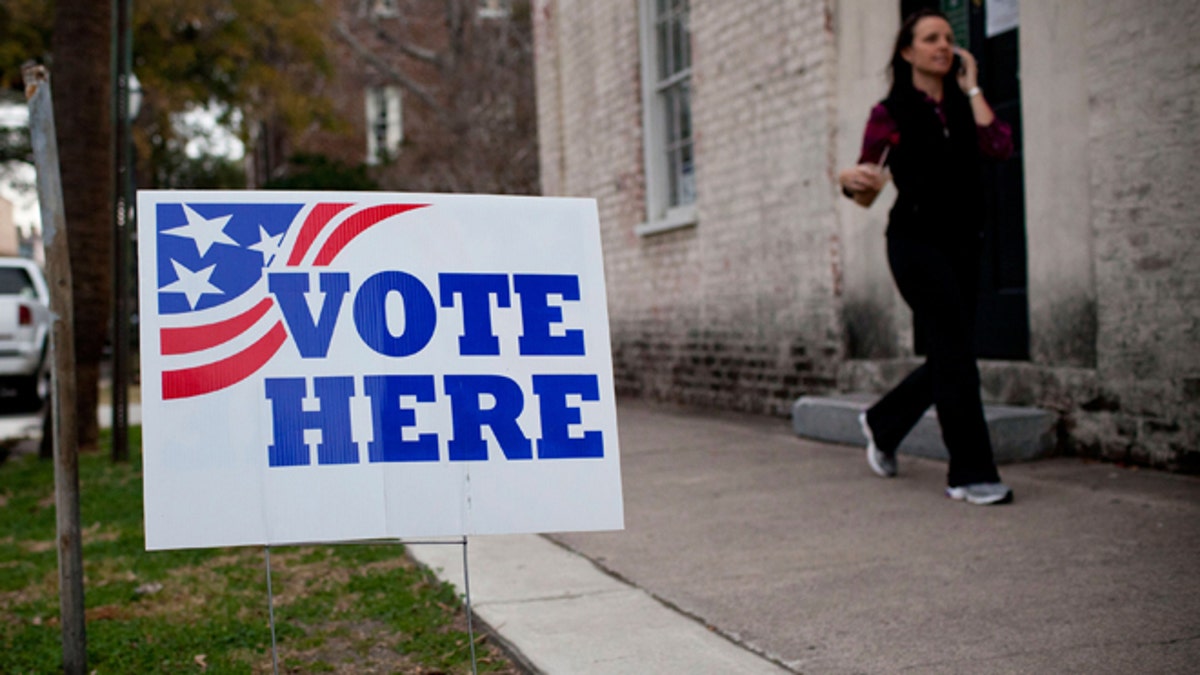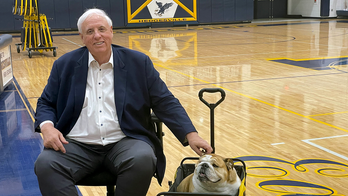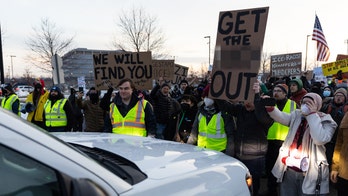
CHARLESTON, SC - JANUARY 21: A "Vote Here" sign is seen outside an East Bay Street voting station on January 21, 2012 in Charleston, South Carolina. Voters decided between four major candidates in the key conservative state. (Photo by Andrew Burton/Getty Images) (2012 Getty Images)
When it comes to winning Latino votes, all eyes in the political world currently are focused on efforts Hispanic-heavy Nevada. But thousands of miles to the east, in the primary state of South Carolina, a growing Latino population is also closely watching the presidential contest … and wondering if their concerns are being heard.
The Palmetto State, which traditionally is seen as a race between white and African-American voters, has seen the Latino community grow around 150 percent since the 2010 census and, while not at the numbers of neighboring North Carolina, is changing the political conversation in the state, experts say.
“We are getting to be a political power,” Myriam Torres, the director of the University of South Carolina’s Consortium for Latino Immigration Studies told Fox News Latino. “We are over a quarter million people in the state.”
The key phrase being “getting to be.” While the number of Latino voters in South Carolina is swelling, unlike African-Americans or evangelical Christians they have not reached the point where campaigns are directly addressing them while on the stump.
According to the Pew Research Center, there are 258,000 Latinos living in South Carolina, making up a little more than 5 percent of the population. Of those, only 88,000 are eligible vote – a figure dwarfed by the state's neighbors, North Carolina, with 248,000 eligible Latino voters, and Georgia, which has 291,000.
“South Carolina is not like North Carolina,” Todd Shaw, a professor of political science at the University of South Carolina in Columbia, told FNL. “It’s one of the fastest-growing Latino populations in the country, but its potential is not fully realized.”
Experts say that the Latino community will be a political force soon and that politicians would be well-advised to start courting them now in order to turn Hispanics there into party supporters.
Which doesn’t seem to be happening just yet.
On the Democratic side, both former Secretary of State Hillary Clinton and Vermont Sen. Bernie Sanders have focused their attention in South Carolina on capturing African-American votes – touting their civil rights credentials and achievements with the black community – while leaving their Latino outreach mainly in Nevada.
This effort with African-American voters, experts argue, has to do both with Sanders making in-roads with a group that was once viewed as a lock for Clinton, as well as a growing disinterest as compared to 2008, when 56 percent of voters in the Democratic primary were black.
“The African-American community’s interest in this election is flagging because it’s not Obama,” Shaw said. “People don’t see Hillary Clinton as the young fresh face and it’s ironic that they do with Bernie Sanders.”
Much like Iowa, the GOP’s candidates have honed much of their efforts on winning over Evangelical voters in South Carolina, where 65 percent of Republican primary voters in 2012 identified themselves in exit polls as “born-again or evangelical Christians,” according to Politico.
Within the evangelical ranks in the state, there are many Latinos, and church leaders say that most of them fall in line with fellow-worshippers when it comes to the issues that top Latino voters’ lists nationally – namely immigration.
“Most Hispanics want the laws upheld,” Mike Gonzalez, the Cuban-born pastor of Columbia World Outreach and a Ted Cruz supporter, told FNL. “It’s only the illegal ones who don’t want the law upheld.”
While Cruz has not polled well nationally among Latino voters, Gonzalez said that he believes Hispanic voters will come around to him because they are just as concerned about issues like border security as other voters.
“[He] will be able to truly garner the support of Hispanics,” he said. “There is a compassionate side to Ted Cruz, but at the same time he is a man who respects the rule of law.”
Other Latinos in South Carolina, however, don’t agree with this assessment – saying that immigration is a fundamentally personal issue, and any candidate who takes a hard-line stance on the issue will alienate themselves from Latino voters.
“The most important issue affecting the community is immigration,” Ilia Rivera, chair of the Greenville Democratic Party’s Hispanic Caucus, told FNL. “The Republicans have nothing to provide us. They have nothing to say to us that matters.”
Whomever Latino voters come out in support of on Saturday, most experts agree that the 2016 primary could be a launching pad for Latino influence in the state, and, come four years from now, campaigns will be taking a much harder look at how to win over the voting bloc.
“The community is gaining in size,” Shaw said. “What is true now, won’t be what it will be in a few years. South Carolina will become more like North Carolina.”
























